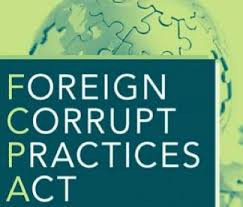Significant Trends from Recent FCPA Enforcement Actions: The Bio-Rad Case
 The FCPA enforcement doomsayers can add another notch to their belt – their predictions and suggestions of “enforcement slow downs,” “significant policy changes,” and other misguided claims can be added to the ash heap of erroneous predictions. It is amazing how supposed “analysis” is produced to fill the gaps in time when no enforcement activity occurs.
The FCPA enforcement doomsayers can add another notch to their belt – their predictions and suggestions of “enforcement slow downs,” “significant policy changes,” and other misguided claims can be added to the ash heap of erroneous predictions. It is amazing how supposed “analysis” is produced to fill the gaps in time when no enforcement activity occurs.
DOJ and the SEC are proving once again that the fourth quarter of each year usually turns out some interesting enforcement actions. The Fourth Quarter of 2014 has been an interesting quarter and we still have six weeks to go.
The three recent enforcement actions: Bio-Rad, SBM Offshore and Layne Christensen demonstrate that FCPA enforcement is not as predictable as we think, and that DOJ and SEC prosecutors respond to individual cases and circumstances. In today’s posting, I will examine the Bio-Rad settlement. Tomorrow, I will discuss the SBM Offshore and Layne Christensen matters.
The Bio-Rad case is significant in several respects – not because of the large disgorgement, DOJ’s decision to enter into a Non-Prosecution Agreement, or Bio-Rad’s two-year obligation to report to the government on its remediation and compliance program.
 Instead, the Bio-Rad case demonstrates the government’s willingness to prosecute companies for internal controls and compliance program deficiencies. The government’s factual statement outlines a laundry list of control deficiencies and compliance program failures.
Instead, the Bio-Rad case demonstrates the government’s willingness to prosecute companies for internal controls and compliance program deficiencies. The government’s factual statement outlines a laundry list of control deficiencies and compliance program failures.
Most importantly, with respect to the Russia “misconduct,” DOJ and the SEC did not claim, nor cite any direct evidence that Bio-Rad paid bribes to Russian health officials. Notwithstanding the lack of such direct evidence, the government cited a mountain of evidence of Bio-Rad’s deficient internal controls and the absence of a compliance program, which tended to establish that Bio-Rad probably paid bribes.
The absence of such direct evidence probably was the result of DOJ’s inability to interview the agent and the three Bio-Rad individuals involved in the bribery scheme. The foreign-based agent has no reason to cooperate with DOJ, and the three Bio-Rad individuals may have not cooperated because of potential criminal liability.
 The government’s evidence fell into three categories: (1) Internal control failures leading to payment of high commissions to an agent for no services, defective documentation and lack of any review of invoices; (2) deficient compliance program elements surrounding an absence of due diligence screening of third parties; and (3) circumstantial evidence suggesting that officers were aware of bribery scheme.
The government’s evidence fell into three categories: (1) Internal control failures leading to payment of high commissions to an agent for no services, defective documentation and lack of any review of invoices; (2) deficient compliance program elements surrounding an absence of due diligence screening of third parties; and (3) circumstantial evidence suggesting that officers were aware of bribery scheme.
The Bio-Rad picture of misconduct in Russia is overwhelming. The significance of the Bio-Rad case may be revealed in the months to come. It shows DOJ’s willingness to conduct a painstaking review of internal controls and a company’s compliance program and to proceed on a violation theory without direct evidence of bribery. Up till now, the SEC has pursued such cases (e.g. Oracle), but now DOJ may be willing to join the club using this theory.
The fact that DOJ appears more willing to join the painstaking review of internal controls could have significant implications. After all, it is a criminal offense to circumvent internal controls, and DOJ has not brought such a case against an individual. DOJ has confined its criminal enforcement to bribery and internal controls when there is specific evidence tying deficient controls to bribery payments.
Even more interesting, however, is DOJ’s citation in its factual statement of the failure of Bio-Rad to maintain an adequate compliance program. DOJ’s reliance on this evidence suggests that it may rely on similar showings of compliance program deficiencies to bring criminal enforcement actions.














